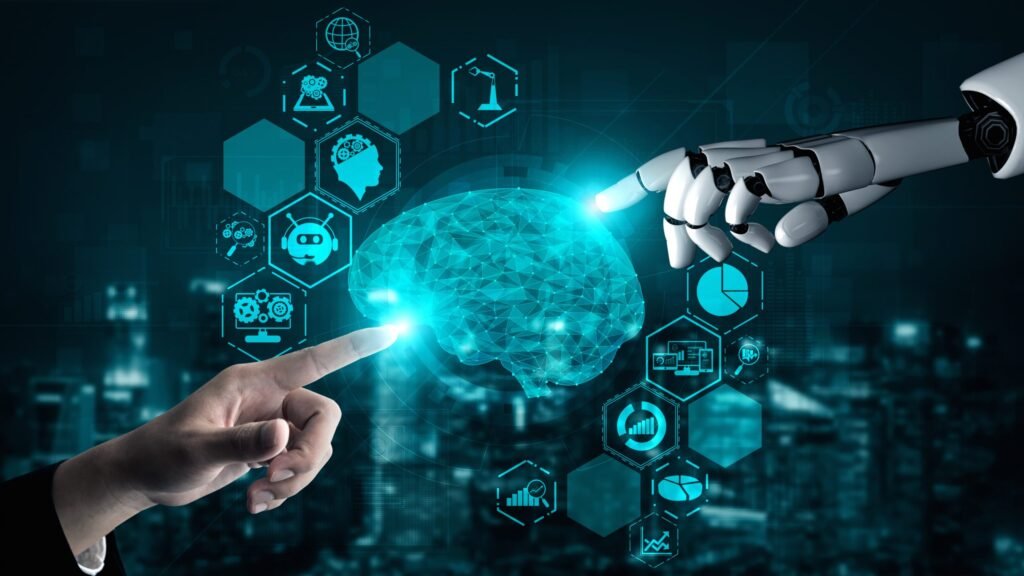Artificial Intelligence (AI) has made incredible strides in recent years, performing tasks that once seemed impossible for machines. From beating grandmasters in chess to composing music and diagnosing diseases, AI continues to challenge our understanding of intelligence. But can machines truly think? Can AI ever replicate the cognitive abilities of the human mind? In this article, we take a deep dive into the debate surrounding AI versus human intelligence.

Understanding Intelligence: Human vs. Artificial
Human intelligence is a complex interplay of reasoning, problem-solving, emotional understanding, and creativity. It is shaped by experiences, culture, emotions, and consciousness. AI, on the other hand, relies on algorithms, pattern recognition, and vast amounts of data to make decisions. While AI can process information at incredible speeds, it lacks self-awareness, intuition, and the ability to reason in the way humans do.
Strengths of AI
AI has several advantages over human intelligence in specific areas:
- Speed and Efficiency – AI can process large volumes of data in seconds, making it invaluable for applications such as data analysis, financial forecasting, and medical diagnosis.
- Automation and Precision – AI eliminates human errors in repetitive tasks, making industries like manufacturing, logistics, and customer service more efficient.
- Learning from Data – Machine learning models continuously improve by analyzing new information, allowing AI to enhance its accuracy over time.
- Availability – Unlike humans, AI does not require rest, breaks, or sleep. It can operate 24/7 without fatigue.
Limitations of AI
Despite its impressive capabilities, AI has notable limitations when compared to human intelligence:
- Lack of Creativity – AI can generate content based on existing data but struggles with genuine innovation, imagination, and abstract thinking.
- Emotional Intelligence – Humans possess empathy, emotions, and social understanding, which AI lacks. This makes AI unsuitable for roles requiring deep emotional connections, such as counseling or leadership.
- Context and Common Sense – AI often struggles with context and common sense reasoning, leading to misunderstandings in communication and decision-making.
- Consciousness and Self-Awareness – AI lacks subjective experiences, emotions, and self-awareness, which are fundamental aspects of human cognition.
Can AI Ever Truly Think?
The debate over whether AI can truly think revolves around two key concepts: Strong AI and Weak AI.
- Weak AI: This refers to AI systems designed for specific tasks, such as chatbots, virtual assistants, and recommendation algorithms. These systems mimic aspects of human intelligence but do not possess true understanding or consciousness.
- Strong AI (Artificial General Intelligence – AGI): This theoretical concept describes an AI system with human-like reasoning, self-awareness, and the ability to generalize knowledge across different domains. AGI remains a distant goal, as current AI models lack the cognitive flexibility of humans.
Neuroscientists and AI researchers continue to explore whether machines can ever develop consciousness. Some argue that human intelligence is deeply rooted in biology and emotions, making it impossible to replicate in machines. Others believe that as AI advances, it may one day achieve a form of synthetic consciousness.
Ethical and Philosophical Implications
If AI were to achieve human-level intelligence, it would raise profound ethical and philosophical questions:
- Rights and Responsibilities – Should conscious AI have rights, similar to humans?
- Impact on Society – How would AGI affect employment, governance, and human identity?
- Moral Decision-Making – Can AI develop moral reasoning, and should it be trusted with critical decisions?
Conclusion
While AI is incredibly powerful in processing data, automating tasks, and even mimicking human behavior, it remains fundamentally different from human intelligence. AI lacks true understanding, consciousness, and emotions. While the dream of Artificial General Intelligence continues to captivate researchers, we are still far from creating machines that can truly think like humans.
The future of AI may not necessarily be about surpassing human intelligence but rather augmenting human capabilities. By working alongside AI, we can harness its strengths while preserving the unique qualities that define human cognition and creativity.